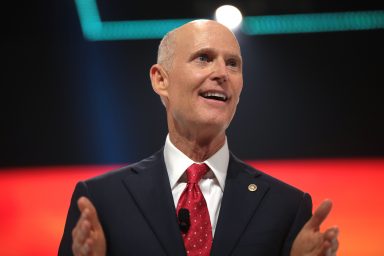Biden Makes Push to Help Improve Access to Mental Health Services
Affordable mental health care is difficult to find in the United States. The Biden administration wants this to change.
|
Listen To This Story
|
There is a deep divide between physical and mental health in the US, not just in terms of how people talk about it but also in the way treatment is available (or not) and sought out (or not). Now, the White House is trying to bridge that gap by achieving greater parity between how physical and mental health are covered.
Americans have always viewed physical injuries almost like a badge of honor. Back in the day, if you needed a cast for a broken limb, you’d get your family and friends to sign it. In the digital age, without a second thought, people post on social media when they sprain an ankle or worse.
And, of course, if such an injury requires treatment, they go to see a doctor and post another selfie from there as well.
It is an entirely different story when it comes to mental health. Even though 90 percent of Americans believe the country is in a mental health crisis, few of them talk about their own struggles. In fact, they conceal them from their loved ones, even though it might help to talk about them. As a result, problems like depression or anxiety often remain hidden. And, if they even seek treatment, Americans don’t generally post selfies from their therapists’ offices because there is still a stigma attached to mental health problems.
Another obstacle is that treatment for them is more difficult to come by. And that is something the current administration is trying to change.
Earlier this week, President Joe Biden announced a plan that would force private insurers to cover mental health services the same way as physical health. Technically, they are already supposed to according to a 2008 law. However, private insurance providers often do not abide by it.
That is about to change if the White House gets its way.
“Right now, for millions of Americans, mental health care and treatment for substance abuse is out of reach,” Biden said on Tuesday.
He noted that less than half of all adults diagnosed with a mental illness, i.e., those who sought treatment, also received care for it. In addition, nearly 70 percent of children who seek help for addiction or mental health issues cannot get it.
That is why the administration is proposing a rule that would require insurers to achieve greater parity between the physical and mental health coverage they provide.
“Just like when you break a bone or have a heart attack, when you’re having a mental health crisis, you should be able to get help — medical help, professional help,” Biden said.
However, that help is often elusive because insurers make it difficult to get, the president noted. He added that the networks of mental health professionals are inadequate, which forces patients to seek expensive out-of-network care elsewhere… if they can even afford it.
The new rule, which is now undergoing a 60-day notice-and-comment period, is meant to remove some of these obstacles.
Perhaps most importantly, it requires insurers to find out how many mental health providers are in their networks, how much they are paid, and what it takes to expand those networks.
In other words, they have to determine how easy it is for patients to get mental health care and then make the required improvements to bring those services on par with physical care.
That alone, in theory, would ensure that more Americans would be able to seek out treatment and actually get help.
“This mental health crisis is something we need to face together as a country. We have a moral obligation, in my view, to be there for each other, to reach out — reach to our neighbors in grief and stress and trauma and despair. Reach out to them to offer help or just a listening ear; to have the courage to ask for help when we need it,” Biden said. “And it’s hard, because we know that even when it feels as dark as it can get, we aren’t alone. It’s important for people to realize they’re not alone.”




